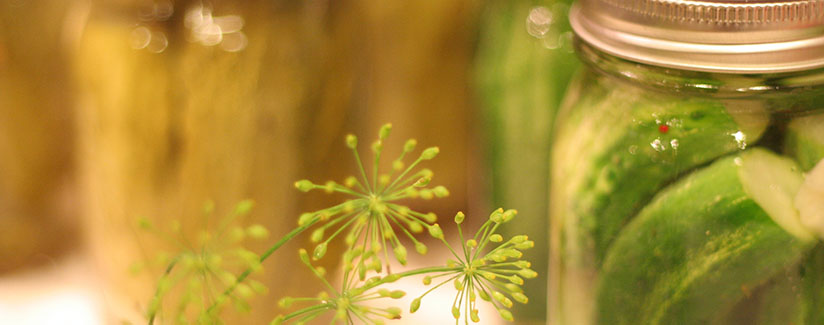
Pickle Juice – The New Sports Drink?
We’ve been seeing some recent articles touting pickle juice as an aid to reduce muscle cramping. And companies are marketing the juice as a sports drink. To determine whether pickle juice packs this kind of a punch, we asked nationally renowned expert on nutrition and fitness Dr. Liz Applegate, Director of Sports Nutrition at the University of California-Davis, to weigh in on the topic.
Is the idea of using pickle juice as an aid to reduce muscle cramps new?
Dr. Applegate:
The concept of pickle juice to help ease muscle cramps is not new. In fact, the idea became popular about 10 years ago, subsided, and is now back in vogue. This renewed interest in pickle juice may be part of the trend to consume ‘real’ foods or beverages, or those seemingly more natural instead of processed.
Why is pickle juice thought to prevent or relieve muscle cramps?
Dr. Applegate:
A cramp is a disruption in the electrolyte balance within the muscle cells in the body. Sweat contains sodium and chloride – an electrolyte. People who sweat a lot during exercise may suffer from muscle cramps due to the loss of electrolytes and dehydration. Those who subscribe to the pickle juice theory would recommend roughly 2 ounces of pickle juice to relieve cramping, which is a few hundred milligrams of sodium, to replace electrolytes.
How effective is pickle juice in relieving muscle cramps?
Dr. Applegate:
The evidence is anecdotal. Pickle juice contains a large amount of sodium – about 4 times that in sports drinks, and if you exercise or sweat a lot, you need sodium in your diet to replace what is lost. After exercise, those who drink pickle juice probably do so in combination with other fluids like water or a sports drink in addition to resting, which reduces cramping.
Since pickle juice contains a lot of sodium, how would drinking it affect someone relative to daily recommendations of sodium intake?
Dr. Applegate:
Adequate sodium intake is 1,500 milligrams per day; however, most Americans consume 3,000-plus milligrams of sodium daily. Most Americans probably get enough sodium, so there shouldn’t be any need to drink pickle juice. Athletes need more sodium due to losses in sweat but this is easily obtained through diet.
What can people do to help prevent or relieve muscle cramps?
Dr. Applegate:
For cramp-prone individuals, consuming ample fluids along with an electrolyte packet of sodium chloride, potassium and magnesium may help prevent muscle cramps, although this, too, is anecdotal. Cramp-prone individuals should assess their diet to ensure it is balanced based on their level of activity, and should always stay hydrated.


























